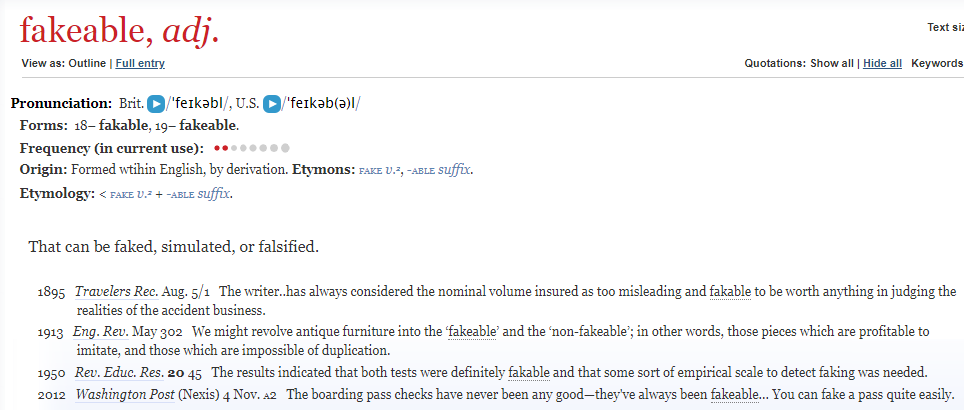
A notable entry in the October update to the OED is the term ‘fake news’.
Although it was popularized in 2016 during the US presidential election campaign, did you know that 'fake news' can be dated back to 1890?
(1/3)
Although it was popularized in 2016 during the US presidential election campaign, did you know that 'fake news' can be dated back to 1890?
(1/3)

Having re-emerged in 2016, the widespread use of ‘fake news’ has contributed to the increasing usage of other ‘fake’ words, such as ‘fakeable’, ’fakement’, and ‘fakeness’.
(2/3)


(2/3)



To see which other ‘fake’ words made it into our latest update, take a look at the full list of new entries and senses:
(3/3)
public.oed.com/updates/new-wo…
(3/3)
public.oed.com/updates/new-wo…
• • •
Missing some Tweet in this thread? You can try to
force a refresh



